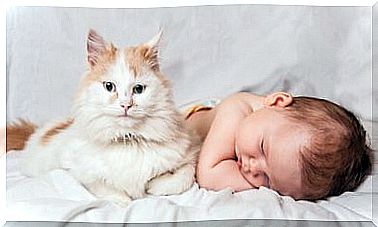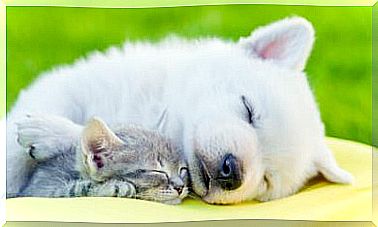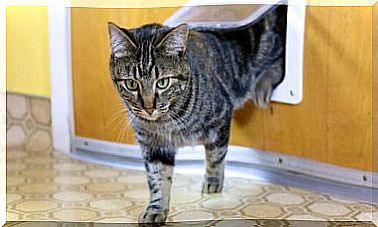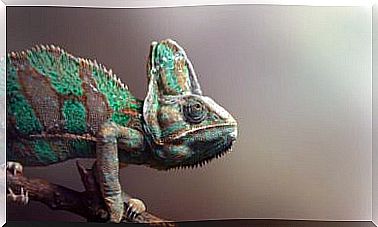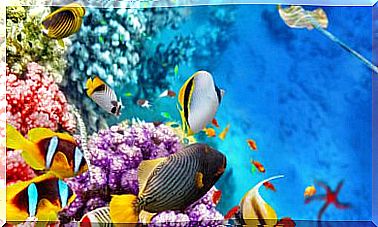Acute Diarrhea Treatment In Cats
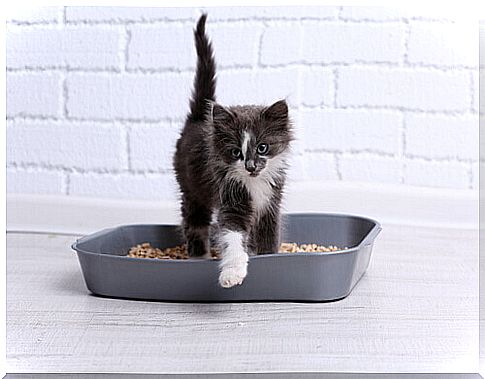
Diarrhea is a sign that something is wrong in the cat’s gut. Vomiting and acute diarrhea in cats, as well as urinary problems, are the most frequent causes of visiting the veterinarian.
There can be several problems that cause diarrhea in cats and, therefore, it is important to go to the vet to find out the cause.
How to identify diarrhea?
A cat suffering from diarrhea has loose or watery stools, colors lighter or darker than normal, they may also have mucus or fresh blood. In addition, the cat may make more efforts when defecating.
The symptoms will depend on the part of the intestine that is affected:
- Intestine. The diarrhea is abundant and the animal ends up losing weight.
- Large intestine. It is difficult for the cat to defecate and the stools are small, very numerous and, on occasions, mucus or fresh blood can be observed.
- Combination of symptoms of the small and large intestine. This is what happens most of the time.
If the cat uses the litter box, it will be easy to identify the type of feces to inform the vet. However, for cats relieving themselves outside it can be more difficult. We can look at the base of the cat’s tail and anus in case feces have stuck.
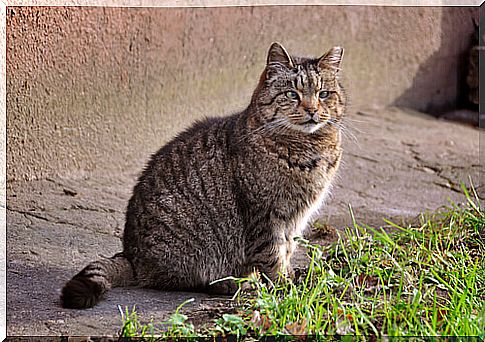
Causes of acute diarrhea in cats
Diarrhea can be caused by many types of diseases, so we must rule out some causes such as parasites through stool samples:
- Overfeeding in kittens. In lactating kittens, an excess in the number of feedings, especially if they are bottle-fed, is a very common cause of acute diarrhea, in the same way that a lack or decrease of breast milk can cause these problems due to underdevelopment of the intestinal tract.
- Change of diet. A sudden change in diet can cause acute diarrhea, so it is best to introduce the new food gradually.
- Food intolerance to some type of food. Normally, the food that causes it is checked with elimination diets.
- Infection by bacteria, viruses or parasites. Infections are usually very contagious, so if you have more than one cat at home and you see diarrhea, it is best to isolate it. Some infections can be very dangerous such as panleukopenia; Salmonella and Campylobacter are two very common bacteria that cause diarrhea, while parasites, giardia, coccidia, and roundworms are common in small cats.
Acute diarrhea treatments
Diarrhea can become chronic. In the case of acute diarrhea in cats, the veterinarian will try to cut the symptoms through medication and keep the cat that way until it regains its intestinal balance.
Treatment depends on the cause that causes acute diarrhea, and there are tests to detect the presence of certain parasites such as giardia, as well as diseases such as parvovirus.
How long diarrhea lasts is important for diagnosis and treatment. At times, it may be necessary to rehydrate the animal due to the amount of water lost in the feces.
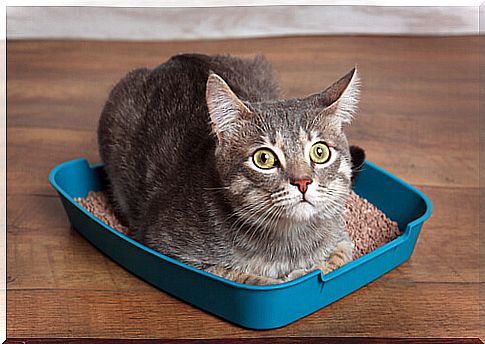
After a time of fasting, a soft diet is recommended, which can be homemade, always following veterinary instructions, or cans of wet food for gastrointestinal problems.
The feedings should be small and offer them several times a day : for example, in three or four feedings to avoid an overload of the intestine.
In the following days, depending on how the cat evolves, the soft diet should be gradually changed towards its normal diet, for which it is necessary to always comply with the duration of the medication to stop the diarrhea.
Once the medical treatment is finished, we will observe if the animal adapts well to its diet again and the diarrhea does not reappear.
Acute diarrhea in cats is the most common, but there are also other diseases that cause chronic diarrhea such as inflammatory bowel disease.
